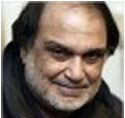Islamisation of Laws Remains a Strong Anti-Women Legacy in Pakistan

By Khaled Ahmed
August 11, 2018
An article in Newsweek Pakistan describes how, in 2016, a law student Khadija was stabbed 23 times in broad daylight by her classmate Shah Hussain after she snubbed his demand for a “relationship”. The case went to court and after more than a year, a judicial magistrate convicted Hussain of attempted murder and sentenced him to seven years in jail. However, at the sessions court, Hussain’s sentence was reduced to five years. Three months later, the Lahore High Court actually let the accused walk because of “insufficient evidence”. Mercifully, the Pakistan Supreme Court took notice and the case is now pending there.
In The Sensational Life and Death of Qandeel Baloch, Sanam Maher describes how a poor girl defied the inherited misery of forced marriage and fled home to become a showbiz star in defiance of a deeply conservative society. Qandeel Baloch was strangled to death in 2016 by her brother to “redeem” the honour of his dirt-poor, mud house-dwelling family. That year, the Human Rights Commission of Pakistan announced there were 326 honour killings in the country. “Of the 326 murders, 67 were committed by a husband or ex-partner; 64 by siblings; 41 by parents; 30 by other relatives; 15 by in-laws; and 10 by the deceased’s son or daughter,” the Commission pointed out.
In her scholarly book Faith and Feminism: Religious Agency or Secular Autonomy, Afiya Zia has reviewed the effect of rising Islamism in Pakistan — and at the global level — on the struggle for women’s rights in Pakistan. This is a work of feminist realism, which echoes the observation made recently on BBC by Egyptian feminist Nawal El Saadawi that the military dictatorship of General Sisi in Egypt is a better guardian of human rights than the government of the Muslim Brotherhood — Hasan al-Banna, Sayyid Qutb, Maulana Maududi and others who expounded radical political Islamist theologies in their books have been ousted from schools and universities in Egypt.
Zia realises that Islamism among women after the rise of the middle class in the Muslim world has inflicted “incredible loss” on the feminist movement. And, “many liberal men and women who are fearful of a backlash from Islamists” have become “ambivalent about Islamic norms and perspectives”. There is no doubt that the women of Pakistan received their hardest blow in the 1980s under the military dictatorship of General Zia-ul-Haq, whose Islamisation of laws remains a strong anti-women legacy in Pakistan. It was during his regime that the women of Pakistan hit the streets and bore the brunt of state violence. The Women’s Action Forum (WAF), which spearheaded the agitation gave the slogan, “Men, Money, Mullahs and the Military,” identifying “the enemy” it was fighting against. The state that rested on “religio-nationalism” aimed more at rejecting modernity and preventing secular values from taking root rather than imposing conservatism. Zia argues, “even if feminists heed the call to deploy strategic silence, this is unlikely to appease Islamists or lead to a suspension or embargo on gender-based violence before, during, or after conflict”.
The Hudood Ordinance of 1979 didn’t bother men as it did women whose testimony was deemed as half of that of men. Traditional property rights had already reduced women to half a human being. These property rights have also reduced the status of the Muslim woman in India. In 1953, Hindu women were given equal inheritance rights. Today, the Muslim woman in India has to cope with being inferior to a Hindu woman in terms of inheritance rights.
In Pakistan, “liberal” became a swearword “dismissing those who would associate with progressive movements”
The women’s rights movement has been trapped by a new trend — Islamic feminism, that in essence revives “consensual” enslavement. Organisations such as the Al Huda of Farhat Hashmi are at the forefront of this trend Islamic feminism has pushed back the momentum in women’s rights produced by the adoption, in 1979, of the United Nations Convention on the Elimination of all forms of Discrimination against Women (CEDAW). The Convention is today opposed by forces that invoke Islam and Sharia in order to reverse the secularisation of Muslim contexts. It opposes women’s rights as in Iran. According to Zia, the time has come to call a spade a spade and stop making concessions to Pakistan’s religious consensus on misogyny.
Zia assesses the work of the women’s organisation Shirkat Gah, which is trying to reconcile CEDAW’s objectives to local culture and religion. Her work takes us through the activism of WAF and tries to understand how it sought to exercise flexibility in the face of tough laws, which people tended to accept as religion. Zia examines the works of such feminist activists such as Kamla Bhasin, Nighat Saeed Khan, Shahla Zia, Rubina Saigol, Farida Shaheed, Asma Jahangir, Ayesha Jalal and Khawar Mumtaz who have taken a stand against the status quo. She also takes account of the works of Riffat Hassan and Asma Barlas who helped by challenging “from within” the patriarchal exegeses of the scriptures.
Khaled Ahmed is consulting editor, Newsweek Pakistan
Source: indianexpress.com/article/opinion/columns/consensual-enslavement-islamic-feminism-women-rights-pakistan-5301072/
URL: https://newageislam.com/islam-women-feminism/islamisation-laws-remains-strong-anti/d/116100
